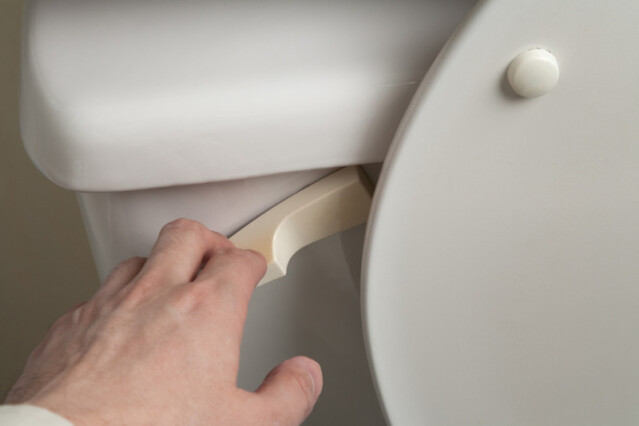Taking Care Of Your Septic System: What Can You Flush?

Most of us would agree that our mothers taught us that bathroom talk was to remain in the bathroom. But, for the sake of septic systems, human health, wildlife welfare and personal finances, let’s bring the conversation discreetly into the open. The list of what not to flush down toilets and into septic systems evades many of us. To be honest, if flushing does not result in the need to grab the plunger, we do not recognize the need to heed such lists. After all, some items are just more convenient to flush.
The problem arises in issues that are not easily or immediately seen. Our actions do have consequences. Flushing certain items increases the probability of septic system damage or failure and contaminating the environment. Even if a system appears to be working well, treatment of the septic waste may be sub-par, or unseen damage may be accumulating.
WHY DOES IT MATTER?
There are three overriding reasons to watch what we flush; preserving function, preserving bacteria, preserving nature. The function of our septic systems is preserved when solids, semi-solids and liquids that damage them are disposed of elsewhere. A working system is an unseen blessing, but an improperly working one becomes a nightmare quickly.
Bacteria exist in septic tanks, absorption beds and soakaway beds to digest pathogens and degrade waste. Some additives slow sewage breakdown in the tanks causing sludge build up and solids to migrate into the drainfield. Preserving this helpful bacteria is vital to system functioning.
The health of our environment impacts nature itself, but it also affects human life. Chemicals and other contaminants flushed into the system leak into groundwater and other surrounding bodies of water. These polluted waters pose threats to wildlife and our children.
WHAT NOT TO FLUSH
Lists of what not to flush fill the Web. But, let’s take a moment to understand the rationale behind not putting a few of these items down the drain. Maybe then we will pause and reconsider the next time we flush.
Disposable Wipes
Baby wipes or any other disposable personal hygiene wipes are not biodegradable and will plug a toilet, clog a sewer line or cause issues anywhere along the way including pump damage or burnout. Be warned! Even if a product label reads, “Biodegradable,” or, “Safe for Septic Systems,” flushing these items poses a costly risk. In fact, disposable wipes damage systems at such a rate that “… a characterization contested by wastewater officials and plaintiffs bringing class-action lawsuits against wipes manufacturers for upending their plumbing.” (Flegenheimer 2015).
More discreetly, the following items are mentioned: Feminine products of any kind including tampons should be placed in the garbage, not flushed. Latex condoms may pass through plumbing but continue to clog the drainfield. These items do not break down in the septic system and pose clogging threats.
Cat litter made of mostly clay particles clogs pipes, adds solid waste volume to the septic reservoir, and will not break down in the tank. This fact also refers also to clumping litter. Fireplace ashes propose a similar risk.
Cigarette butts contain filters that clog and destroy septic pumps. Dryer sheets, facial tissues and paper towels do not break down easily in septic systems. Other commonly flushed items which cause clogs and damage include hair clippings, dirt and coffee grounds. And keep an eye on toddlers. Toys and training pants are the nemesis of plumbing resulting in costly damage.
Caution must be observed when using chemical and drain cleaners. These products corrode sewage grinder pump parts. The result is costly damage. Also, explosive or combustible liquids or materials do not belong in a septic system. The reasons may seem comical (thank you to the Griswolds), but the danger is no joking matter.
Prescription or nonprescription medications flushed down drains contaminate water sources. In April 2007, the New York Times reported that there had been a “growing detection of pharmaceuticals such as birth control pills, anti-depressants, painkillers, shampoos, and other compounds in rivers, lakes, streams and groundwater, including possibly drinking water.” This contamination affects human health with hazards such as inadvertent antibiotic consumption and growing antibiotic resistance. Also, the impact on animal life may go undetected until populations decline beyond recovery. Flushing medications and some personal care products may degrade the health and hygiene they set out to improve.
FINAL THOUGHTS
Let’s be clear. Do a simple search and list after list pops up on the Internet of items not to flush. The view can be quite overwhelming and a little scary. However, the only list to remember is the list of things that are safe to flush. This list includes waste and toilet paper. All other things should find other means of disposal.
Being cautious of what is flushed reaps benefits for the safety of the water supply and, therefore, human and animal life. Also, this practice saves endless inconvenient and even costly clogs, damage, and septic system failure both residentially and for city systems. Let’s keep what belongs in the toilet in the toilet and the rest can go in the trash.
